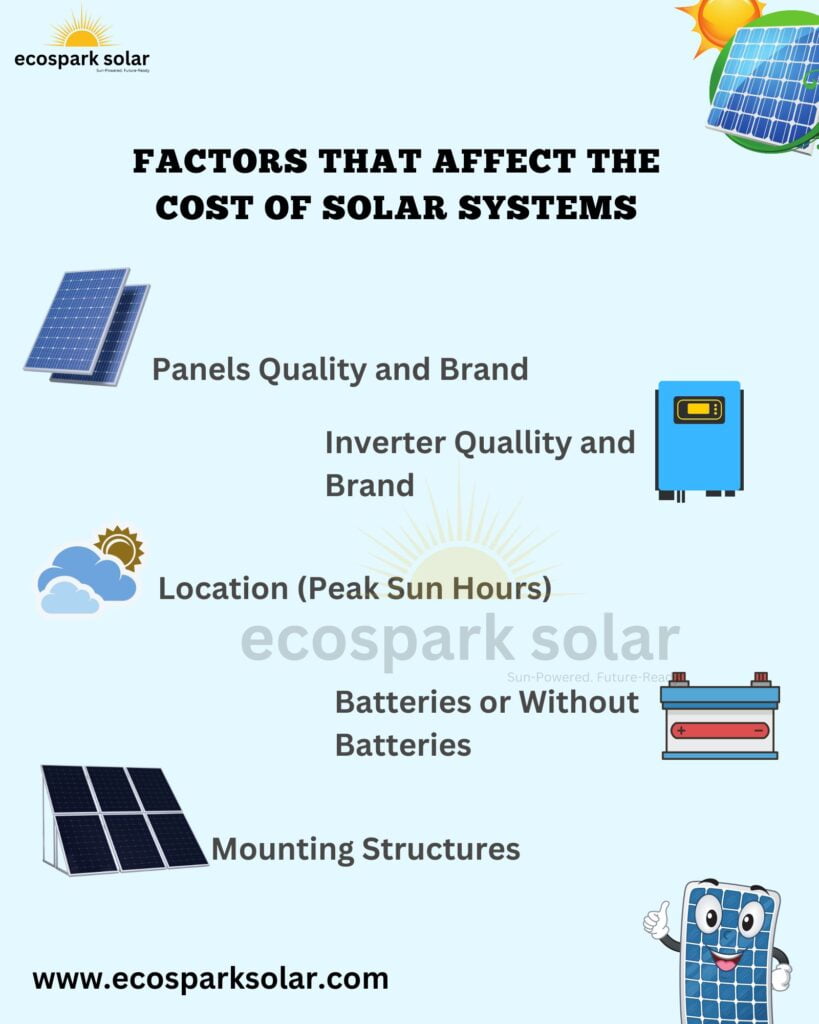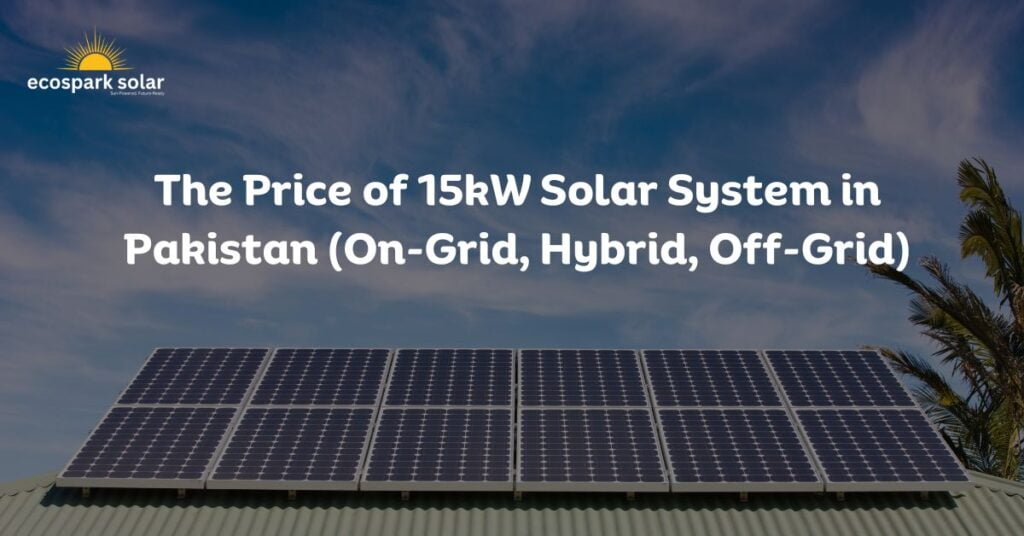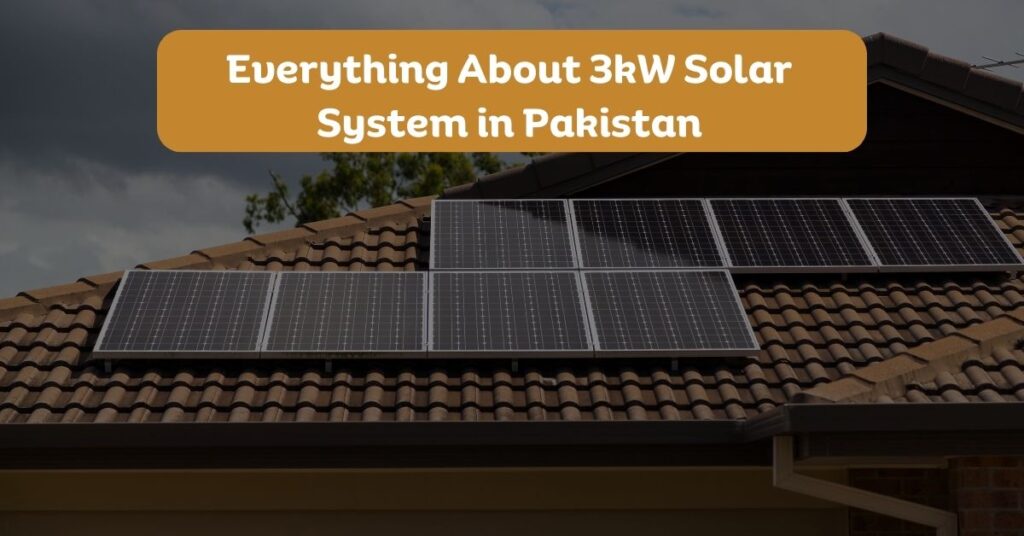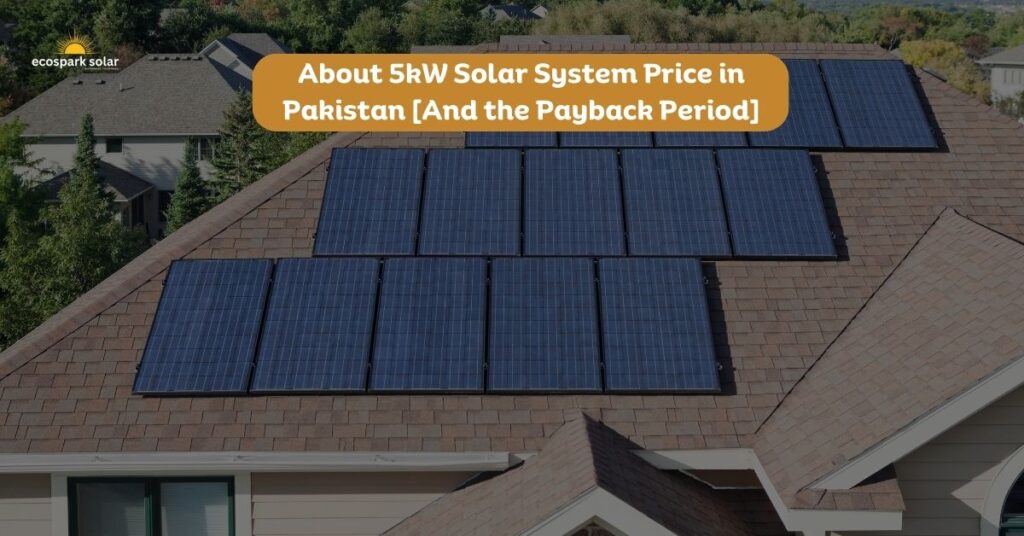In Pakistan, energy prices have been on the rise. Just last month (July-23), the government increased the electricity prices by Rs. 5/unit, taking the bill of those who consume around 500 units to Rs. 18,000+. And since July 2023, the electricity prices have gone further up.
What could be the solution for homeowners and businesses? One way to reduce their reliance on the grid and lower their electricity bills is to turn to solar power. And for a large household and a medium-sized business, a 15kW solar system could be the perfect option.
But how much does it cost? What’s 15kW solar system price in Pakistan?
We will talk about that in detail. Among other things, we will discuss the following:
- How much does a 15kW solar system cost in Pakistan?
- 15kW on-grid solar system price in Pakistan
- 15kW hybrid solar system price in Pakistan
- The average price of a 15kW off-grid solar system in Pakistan
- Factors that affect the price of 15kW solar systems
- The payback period of 15kW solar systems
- How many panels do you need for a 15kW solar system?
Let’s go!
15kW Solar System Price in Pakistan
The cost of a 15kW solar system in Pakistan can vary based on several factors, including the type of solar system (on-grid, hybrid, or off-grid), the quality of components used, the location of installation, and whether batteries are included. On average, a 15kW solar system can cost anywhere between PKR 1,300,000 to PKR 2,000,000, depending on the type of system and brands you choose. This is the data of October 2024, and the prices are prone to change.
Let’s talk about the average prices of each type of solar system.
Average Price of 15kW On-Grid Solar System in Pakistan
On-grid solar systems, also known as a grid-tied system, is connected the WAPDA grid electricity. As of October 2024, he average price of a 15kW on-grid solar system in Pakistan is around PKR 1,300,000 to PKR 1,500,000. Since these systems do not require batteries, they are more affordable compared to hybrid and off-grid setups.
On-grid systems also have the best payback period, as the system utilizes net metering to generate some extra units and send them to the grid. These extra units are adjusted in the bill or paid for by the electricity distribution company.
15kW Hybrid Solar System Price in Pakistan
A hybrid solar system combines the benefits of an on-grid and off-grid system. It is connected to the grid but has a battery backup to store excess energy during power outages. The average price of a 15kW hybrid solar system in Pakistan is higher than an on-grid system, ranging from PKR 1,500,000 to PKR 1,800,000 due to the additional cost of batteries. If you want to have lithium batteries, the price may be a bit higher compared to simple lead-acid batteries.
Average Price of 15kW Off-Grid Solar System in Pakistan
An off-grid solar system operates independently of the grid and requires a sufficient battery bank to store energy for use when the sun is not shining. Due to the higher capacity of batteries needed, the average cost of a 15kW off-grid solar system in Pakistan can range from PKR 1,600,000 to PKR 2,000,000, making it the most expensive option but ideal for remote areas with limited access to the grid.
Please note that the prices quoted above are only estimates and can vary based on many factors. For some homeowners, a 15kW on-grid system may cost less than others, all depending upon the factors mentioned below.
A solar system for everyone.
We’re customer-centric; we will find you a solution within your budget. Whatever your project size, you can always save with Ecospark Solar.
Factors that Affect the Total Cost of Solar System in Pakistan
Not all 15kW solar systems cost the same. Some costs more, and some cost less. Even two systems of the same size that aim for a specific amount of electricity generation may differ in price.
Why is it so? It’s because of a few factors, some of which are given below.
Type of System
We already talked about this in the price section. The type of solar system you choose will have a significant impact on the cost. On-grid solar systems are the most common type of solar system in Pakistan and are typically the most affordable. Hybrid solar systems are more expensive, but they offer the benefit of being able to store excess electricity in batteries.
Off-grid solar systems are the most expensive type of solar system, especially when you want to have additional batteries, but they are a good option for homes and businesses that are not connected to the electrical grid.
Quality of the Components
The quality of the solar panels, inverter, and other components will influence the overall cost of your system. Higher-quality components will cost more, but they will also be more efficient and have a longer lifespan. Since solar is a large investment, we recommend going for A-grade products, that will maximize your savings in the long run.
I will give you an example. A few days ago, a former university mate called me and told me that he is planning a system. While we didn’t operate in the area, I asked him to check with local solar panel shops. He told me that he’s getting Jinko N-Type in around 15,500 per panel. Strange, I thought. When I asked for document, they turned out to be local counterfeit panels. I then recommended him to visit a solar panel supplier and he gave him those panels at around 18,500.
So, be mindful of that as well. This report by ARY about counterfeit solar panels sheds further light on this incident.
You May Want to Know: How Much Do Quality Solar Panels Cost in Pakistan?
Location of the Installation
The location of the installation will also affect the cost of the system. Solar systems that are installed in areas with high levels of sunlight will be more efficient and will produce more electricity. You will need fewer panels to generate a specific amount of electricity, hence lower costs.
On the other hand, solar systems that are installed in areas with high levels of shading will be less efficient and will produce less electricity. You will need more panels to generate your desired amount of electricity, hence a higher initial cost. Also, if you live in remote areas, the transportation costs might add up to the overall price of solar panels and solar systems.
| You May Also Want to Know: How to Calculate the Best Tilt Angle and Direction for Solar Panels in Pakistan? |
Installation Complexity
The complexity of the solar installation will also affect the cost of the cost of your 15kW solar system. Solar systems installed on complex roofs or where many roof penetrations are required will be more expensive to install. Similarly, systems intended to be installed on the ground may cost more, as you will have to make additional arrangements for mounting.
Type of Structure
Solar panels can be installed, mainly, on two types of structures: standard and customized. Standard structures further have different categories, from lower price to higher price. But overall, standard structure is the cheapest. Then comes the customized structure, which are expensive. To give you an example, a standard structure for 15kW solar system will cost roughly 70,000 to 80,000. But a customized structure would cost around Rs. 300,000. So keep this in mind too.
Net Metering Costs
For on-grid and hybrid solar systems, the net metering arrangement allows users to sell excess electricity back to the grid. While net metering can help offset initial costs, it’s essential to consider any associated fees and regulations that might affect the financial benefits.
Besides the factors mentioned above, the applicable government taxes also affect the price of a 15kW solar system—or, for that matter, the cost of any solar system. Previously, there was a GST levied on solar panels, making the purchase expensive. Recently, the government has exempted solar from GST, which has brought the costs significantly down.

Payback Period of 15kW Solar System in Pakistan
The payback period of a solar system represents the time it takes for the system to recover the initial cost through savings on electricity bills. This period can vary depending on factors such as system cost, electricity rates, net metering tariff, solar system performance, and energy consumption. The shorter the payback period, the better.
Let’s understand through an example.
Suppose we consider a 15kW hybrid solar system costing PKR 1,400,000 in Karachi, Pakistan, with an average electricity bill of PKR 30,000 per month before installing solar. While you may still receive an electricity bill, the units will be offset by the extra electricity you send to the grid. The savings per month could be more, but let’s keep it at 30,000 a month. Annually, it becomes Rs. 360,000. The payback period for this system will be 1,400,000/360,000 ~ 4 years. For safe side, you can keep in mind around 5 to 6 years.
Read more about how to calculate the payback period of a solar system.
FAQs – 15kW System Price in Pakistan
How many units does a 15kW solar system generate?
The energy output of a solar system depends on various factors, including sunlight hours, panel efficiency, and temperature. On average, a 15kW solar system in Pakistan can generate around 60-75 kWh of electricity per day.
If you want more details, read our article on the power output of a 15kW system in different cities of Pakistan.
What’s the lifespan of a 15kW solar system?
High-quality solar panels can last anywhere from 25 to 30 years. Inverters might need replacement after 10-15 years, but regular maintenance can extend their lifespan.
How many panels are needed for a 15kW solar system?
The number of panels required depends on the wattage of the individual panels. For a 15kW system, assuming 350W panels, approximately 43 panels would be needed. If you have limited space, go for 600W panels—in that case, you will need 25 solar panels.
15kW Solar System Price in Pakistan: Concluding Thoughts
The price of a 15kW solar system ranges from PKR 1,300,000 to all the way 2,000,000. Much depends upon the type of system you choose. On-grid systems are the most affordable, while off-grid is the most expensive. If your area doesn’t experience too much load shedding, go for an on-grid system, as its saving potential is huge. At the same time, it is affordable.



